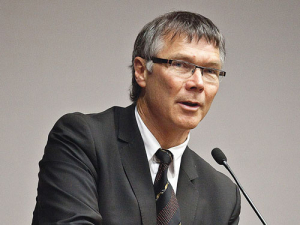OPINION: When we finally get a government (no agreement had been finalised at time of writing), the first thing the new administration needs to review is all the regional and district plans that are being rolled out across the country to comply with the new National Policy Statement (NPS).
These are another of the disastrous regulatory reform grenades lobbed at the farming sector by outgoing Environment Minister David Parker – a man who will go down as one of the key reasons farmers comprehensively voted out the previous government.
“Some of these plans are threatening the economic viability of our regions,” according to Beef+Lamb NZ chief executive Sam McIvor.
He adds that regional councils haven’t really considered the economic and social consequences of what they are doing and the pain it will inflict on some farmers.
The incoming government needs to put a halt on the NPS plans until there is real clarity. Some of the targets being demanded by some councils overstep the mark and what is needed is a more long-term strategic approach.
Federated Farmers says the NPS for Freshwater requires all 16 regional councils around NZ to have new freshwater rules in place by 2024. It points to the Otago Regional Council as an example, which has been first to release its draft plan under the new rules.
“The national direction is so restrictive that Otago’s proposal requires a fertiliser cap of just 100kg of nitrogen per hectare (much less that the 190kg national cap) and a stocking rate cap of 2.5 cows a hectare in most catchments across the region,” Feds explains. “These requirements would completely undermine our rural communities and leave thousands of farming families across Otago first, and then the rest of the country, unable to make ends meet.”
B+LNZ says the objective should be to support farmers to change, rather than continuing to “beat them with a stick” all the time.
As Sam McIvor points out, farmers are not arguing about the direction of travel on environmental matters, but they want support and pragmatic and practical solutions.
A major review of the new NPS should be a top priority of the new government’s 100 day plan, in an effort to clean up what should be forever known as Parker’s folly.



















